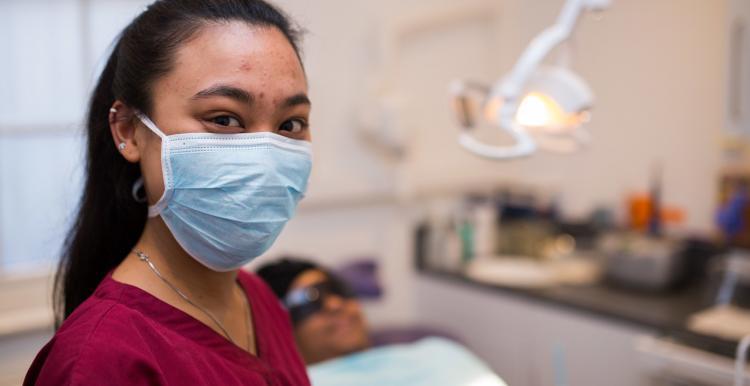How to get a NHS dentist appointment during COVID-19

From 8 June 2020, dentists have been given the green light to reopen as long as they have social distancing measures and the right personal protective equipment in place.
As a result, not all services or practices will be available from this date and there will be fewer appointments available.
How do I find a dentist?
To get the help you need you can:
- Phone your local dentist to get information about their opening hours and advice on where you can go to get the care you need.
- If you don't have a dentist or your dentist is closed, you can phone 111. Translation services are available.
- If you are deaf or hard of hearing visit: https://interpreternow.co.uk/nhs111
Do not visit a dentist without an appointment.
Practices will need to prioritise their patients based upon their needs. The British Dental Association advises:
- If you call to make an appointment, you will be asked some screening questions. You'll be asked those same questions again at your appointment.
- You will probably be asked to use hand sanitiser or to wash your hands when you arrive (and again before you leave).
- Social distancing measures will be in place in the waiting rooms.
- Appointments will be managed to allow for social distancing between patients. That might mean that you're offered fewer options for scheduling your appointment.
I need urgent dental assistance - what can I do?
For urgent advice on any oral health issue you can call:
- NHS 111 (open 24 hours a day, 7 days a week)
- Call the dental helpline on 01788 539780 (local rate call in the UK) for free and impartial advice between 9am-5pm, Monday to Friday.
Tell us your story
Has your dental care been disrupted by COVID-19 and its impact on health and social care services? Whether it's good or bad, we want to hear from you.
It only takes five minutes and your feedback can help NHS and social care services understand the steps they can take to improve care for you and your loved ones.
